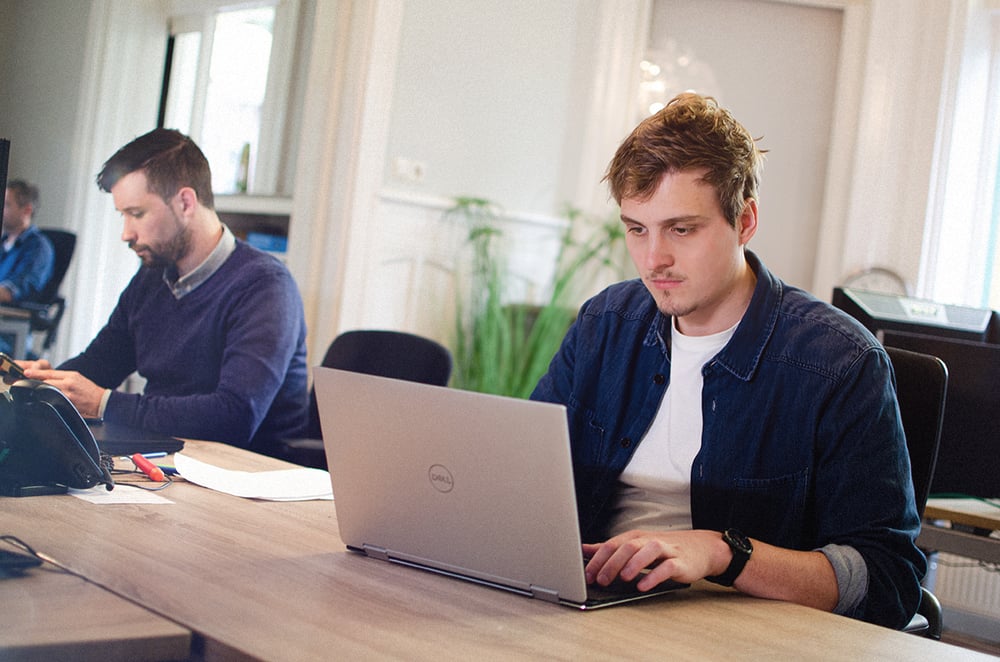If you live on this planet, chances are the last few months have been a bit weird for you. Most likely you’ve been stuck inside the house, your hair growing alarmingly long, baking banana bread and working from home. And if that’s so, chances are pretty good you have been using a VPN to connect to your company’s servers. You’ve opened the client, clicked on connect, maybe filled in some personal details, and done. You’re connected to your work drives. But what’s a VPN exactly, and how does it work?
How a VPN works
A Virtual Private Network, or VPN, has the main goal of keeping your private information private. It works by routing your device’s internet connection through your chosen VPN’s private server rather than your internet service provider (ISP) so that when your data is transmitted to the internet, it comes from the VPN rather than your computer. The VPN acts as an intermediary of sorts as you connect to the internet, thereby hiding your IP address – the string of numbers your ISP assigns your device – and protecting your identity. Furthermore, if your data is somehow intercepted, it will be unreadable until it reaches its final destination.
When do you need a VPN?
- Protecting company information
Probably the most common use for a VPN is the one companies employ. When a company has one or more remote workers, it’s useful, if not necessary, to provide them with a VPN service. This protects all information transmitted from the employee’s remote location to the servers of the company, and vice-versa, preventing any leaks or attempted information thefts.
- Bypassing censorship
The internet is a vast, possibly unlimited source of information, entertainment and everything in between, with no governing body. It transcends country borders, which makes it very hard to police and control. Nevertheless, governments or companies in certain parts of the world try to censor certain websites or content that they believe shouldn’t be accessible. At best, this can be annoying when you want to watch a video on Youtube which is only available in America. At worst, it gives governments a power which they should not have, and infringes on human rights to freedom of information and expression. A VPN can be used to bypass this. By changing your IP address, the VPN can trick the website by making it believe that you’re accessing it from a different part of the world. This is what people in Asia use to access Facebook, a website which is largely forbidden in parts of the continent.
- Price hunting
You can use VPN in a similar way to find cheaper prices for the things you want to buy. For example, say you want to go on a trip from Amsterdam to Phuket. Buying the same flight tickets from (what the website believes is) the Netherlands might be more expensive than simply turning on your VPN, pretending to live in Thailand and benefiting from what KLM thinks are fair prices for a Thai customer.
- Protecting your online identity
Generally using a VPN while browsing the internet is advised if you like the idea of keeping your persona private. By cloaking your IP and encrypting your information, the VPN makes it hard, if not impossible for you to be targeted for ads, put under surveillance or affected by data theft. It’s just an added layer of protection.
You can use VPN to find cheaper prices for the things you want to buy.
- Staying safe on public wifi
Even more so on public wifi, which is a goldmine for hackers, a VPN makes sure your information is safe. On a public network the risks are greater than on your private, home network, or your company’s network. These are used by many people at one time, without much protection, which make them accessible feeding grounds for hackers who are just looking for a quick meal. A VPN encrypts your data and takes care of that. - Enjoying your entertainment abroad
Say you bought those tickets to Phuket and now you’re sitting in your beautiful hotel room on the sea, itching to watch that new episode on Netflix. Except you can’t, because it’s a dutch tv-show only playing in the Netherlands. The network you’re on has a thai IP, so Netflix knows you’re in Thailand. Enter VPN. By changing your IP to a dutch one, your VPN has unlocked all of your dutch content library on Netflix, for your viewing pleasure.
- Secure online banking
Online banking is another sensitive service. Whether you’re moving money around, making payments, playing the stock market or managing your crypto currency, you want to be as safe as possible. Not only private information is at stake, but serious financial details and cold hard cash. Adding that extra security layer by using a VPN and encrypting your data is the sensible thing to do.
There you have 7 ways to maximize the use of your VPN service. We hope this list is useful in helping you decide when to use a VPN and how to do it.




